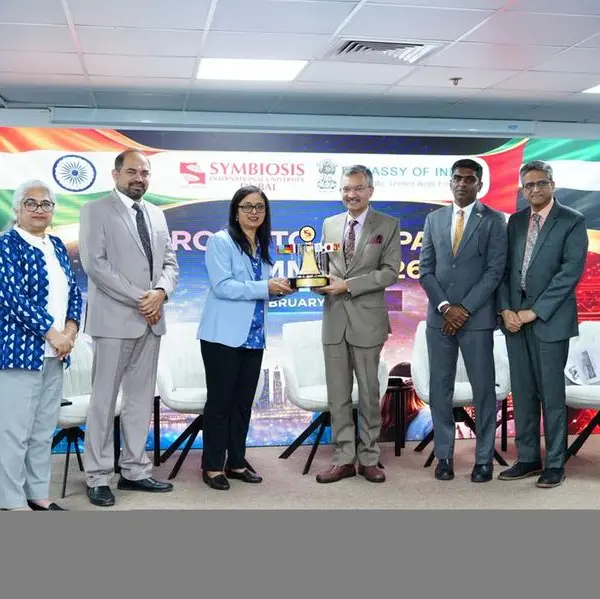PHOTO
Riyadh — The impact of COVID-19 has been far and wide, and one industry, in particular, has been hit the hardest. A new report released today by Boston Consulting Group (BCG) in collaboration with Google, titled “Actions for Destination Marketers to Navigate in a COVID-19 World” assessed the effects of the pandemic on the global travel and tourism business and its impact on Destination Marketing Organizations (DMOs).
The report highlights that the global travel and tourism business has recorded sustained and successful growth over the past 20 years, with a Compound Annual Growth Rate (CAGR) of 5 percent, amounting to $4.7 trillion in 2019. With the effects of COVID-19, a decline in international and commercial passengers around the globe could lead to a loss of up to 58% of jobs (190 million) in the travel and tourism industry and cut the industry’s contribution to global GDP by up to $5.5 trillion (62%).
“The continued success of the global travel and tourism industry in the last two decades can be attributed directly to DMOs, as they generate the required demand for tourism by building destinations’ brands and raising traveler awareness about their respective destination offerings,” said Pablo Martinez, Managing Director and Senior Partner, BCG. “The unpredictable nature of the pandemic has made it quite challenging for DMOs to plan and develop their tourism strategies. Our new research with Google is intended to provide DMOs with a perspective on how consumers’ attitudes toward travel have changed in response to the pandemic and imperatives to navigate the coming future.”
Trends in consumer preference in travel demands have shifted, creating the unpredictability nature in DMOs businesses. Google searches in the Middle East and North Africa (MENA) show that “cancel flight” queries increase by 259 percent in March 2020, compared to January 2020. Moreover, the growth of “staycation” related searches increased by over 400 percent since March.
In Saudi Arabia, searches related to “staycation” have grown by 40% during the summer season. The top countries people searched for on Google in the past 3 months were Saudi Arabia (looking for staycation options), India, Pakistan, Philippines and the UAE
“These shifts in consumer sentiment towards traveling are real, as the fear of catching the virus grows, and accordingly leisure travel is no longer an option or a priority,” said Abdullah Alassaf, Industry Manager, Google. “However, the need to travel is inherent. We found in our research that consumers rate leisure travel as the top activity they miss the most and 31% surveyed in the report hope to plan leisure travel once they feel safe enough to do so.”
As the travel industry continues to adapt to the changes caused by the pandemic, DMOs must be at the forefront to ensure that they are ready for the eventual resumption of travel or more unexpected changes on the horizon. A fundamental building block of responding to the pandemic is the right use of technology and in specific the use of data. Proper gathering and analysis of real-time data and business intelligence will allow DMOs to gain actionable insights required in a highly volatile travel environment and remain agile. With this, DMOs can begin plan ahead for the long-term in three key activities:
Product and service development: Guide deployment of new products and services, health and safety standards, measure and regulations, and operational measures.
Stakeholder engagement: Inform stakeholders (including governments and healthcare officials and travel industry suppliers) of unified communication messages and collaborate with them on setting travel and health standards.
Marketing: Reallocate marketing spend by channel, and guide campaign messaging and timing.
In preparation for the next immediate step for DMOs, BCG and Google have developed a ‘five-R’ approach to guide travel marketers in adapting to the changing industry trends:
Reassess their offerings and value proposition in light of evolving traveler preferences, needs, and concerns.
Reassure travelers on the safety of travel to their chosen destination by addressing their health concerns.
Raise awareness of the destination, including added safety measures and local government regulations, to inspire consumers.
Remove barriers in converting consumers to travelers by making the case for traveling with conscientious health and safety measures in place.
Revive spend in the local economy by supporting tourism
Looking and planning ahead, beyond COVID-19 is imperative for DMOs. As the world moves towards a phase of recovery, focusing efforts on enhancing technology and data collection with the ‘five-R’ approach will be of use for the travel and tourism industry in the long run.
-Ends-
About Boston Consulting Group
Boston Consulting Group partners with leaders in business and society to tackle their most important challenges and capture their greatest opportunities. BCG was the pioneer in business strategy when it was founded in 1963. Today, we help clients with total transformation—inspiring complex change, enabling organizations to grow, building competitive advantage, and driving bottom-line impact.
To succeed, organizations must blend digital and human capabilities. Our diverse, global teams bring deep industry and functional expertise and a range of perspectives to spark change. BCG delivers solutions through leading-edge management consulting along with technology and design, corporate and digital ventures—and business purpose. We work in a uniquely collaborative model across the firm and throughout all levels of the client organization, generating results that allow our clients to thrive.
Contacts
BCG: Gregory Henderson, gregory.henderson@mslgroup.com
Google: Katherine Vargas, vargask@google.com
Google: Marwah Khost, aljarkas@google.com
© Press Release 2020
Disclaimer: The contents of this press release was provided from an external third party provider. This website is not responsible for, and does not control, such external content. This content is provided on an “as is” and “as available” basis and has not been edited in any way. Neither this website nor our affiliates guarantee the accuracy of or endorse the views or opinions expressed in this press release.
The press release is provided for informational purposes only. The content does not provide tax, legal or investment advice or opinion regarding the suitability, value or profitability of any particular security, portfolio or investment strategy. Neither this website nor our affiliates shall be liable for any errors or inaccuracies in the content, or for any actions taken by you in reliance thereon. You expressly agree that your use of the information within this article is at your sole risk.
To the fullest extent permitted by applicable law, this website, its parent company, its subsidiaries, its affiliates and the respective shareholders, directors, officers, employees, agents, advertisers, content providers and licensors will not be liable (jointly or severally) to you for any direct, indirect, consequential, special, incidental, punitive or exemplary damages, including without limitation, lost profits, lost savings and lost revenues, whether in negligence, tort, contract or any other theory of liability, even if the parties have been advised of the possibility or could have foreseen any such damages.



















